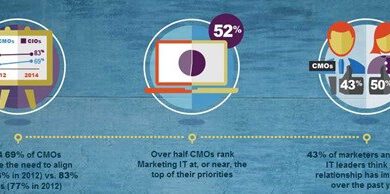Proptech is disrupting the property industry – here’s why it’s a good thing
While it’s too soon to make accurate predictions on what the impact of the national lockdown and the global Covid-19 pandemic will have on the property market, it is sure to disrupt the industry one way or another. And disruption, (recent) history teaches us, isn’t necessarily a bad thing. In fact, it’s often exactly what an industry needs to bring about new opportunities.
Carl Coetzee, CEO, BetterBond |
Proptech – like many other terms that end in “tech” – has become something of a fancy buzzword, which is why it is useful to turn to an expert on the matter for a comprehensive definition. James Dearsley, co-founder of Unissu – “the largest most accurate directory of proptech businesses in the world” – explains that proptech is “one small part of a wider digital transformation [that] considers both the technological and mentality change of the real estate industry”. In its simplest form, proptech is the application of technology for new ways of conducting business in the property sector, with the focus on efficiency and impact.
The stats certainly support the role digital technology is playing in shaping various aspects of the sector. A global survey conducted by KPMG in 2018 showed that 97% of the 270 respondents from 30 countries believed digital innovations are influencing their businesses somewhat.
In South Africa, too, we’re adopting more proptech solutions in various parts of the sector and there’s every likelihood that a digital-first approach to property will become more pervasive in the coming months and years, and particularly as we look for innovative ways to strengthen and grow the industry amidst the global Covid-19 pandemic. Proptech can help make the industry more efficient and more resilient, with the purpose of driving more value for clients in the most relevant way.
Here are some of the key ways in which digital technologies are likely to impact the property market, many of which are already at play.
Data and analytics
Data is increasingly becoming the modern business’s most important and valuable asset. The ability to capture, interpret and analyse relevant information makes it easier to spot trends and make strategic decisions that have a positive impact on the business at large. Data effectively takes the guesswork out of decision-making, which in the property sector can help decision-makers predict market fluctuations and plan accordingly, as well as take advantage of opportunities.
And as technology becomes more sophisticated, it becomes easier to leverage the tools needed to access and interpret the data.
Consumer empowerment
The transparency and convenience that digital technology allows for means much of the power has shifted to consumers, which in turn means they are able to make more informed decisions.
At the most basic level, the nature of the interaction between the agent and buyer has changed significantly as digital resources bring the information about properties closer to them, helping them narrow their search and empower them with all the relevant information pertaining to their search and interests. Having said that, the role estate agents play in property transactions remains vital. While the digital tools help to make information more readily available to the client, the agent offers advice and expertise that are invaluable in the home-buying process.
BetterBond’s own experience in recent days has further reinforced the power of online tools. While there has been a decrease in the number of enquiries and applications we’re getting for home loans, the fact that they are still coming in during lockdown speaks to the efficacy of the online systems and the fact that people are readily and comfortably using them.
When clients are equipped with the right knowledge and resources, they are able to make smarter decisions that ultimately enhance the industry.
Streamlined processes
With most property companies having to embrace remote work, they’ve also had to become more adept at using new technologies.
We’re of the optimistic view that this time of social and economic uncertainty also presents an opportunity for the property industry to streamline processes, to embrace digital technologies more widely, to rethink age-old ways of thinking and doing, and to strive more earnestly to ensure the client is at the heart of what we do.
When the world emerges from the crisis, the companies that stand out will be those who’ve leveraged these technologies to provide clients with the best possible products and services, amidst the limitations and uncertainty that prevailed.
As a sector, we need to be mindful of the impact technology has on our business, but we also need to embrace its power and potential for improving both business operations and client experiences. Though only time will tell, early indications are that those who are strategically embracing proptech are likely to better weather the storms in the coming years.
Source: bizcommunity.com


